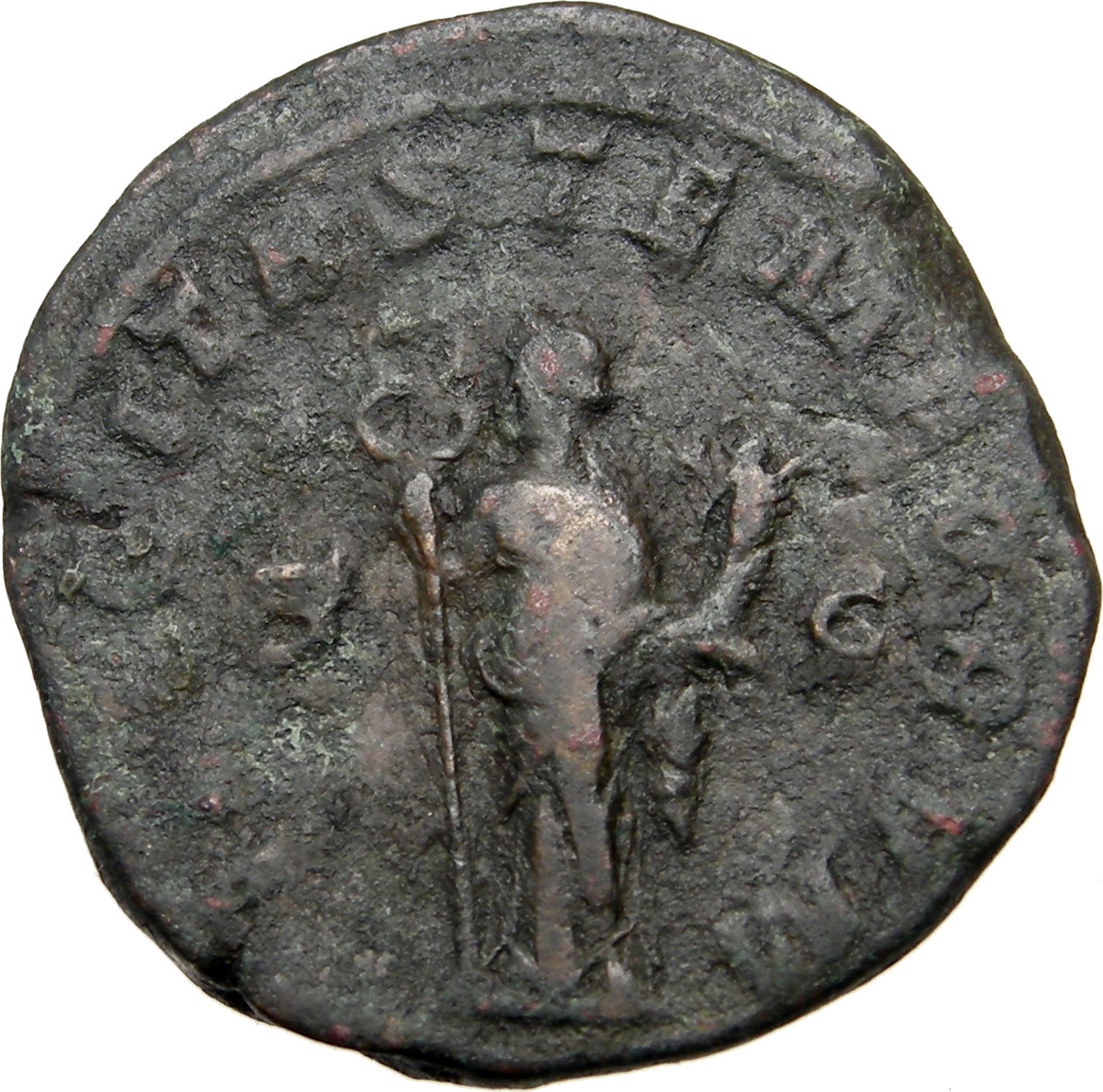The hoard of more than 52,000 coins dating from the 3rd Century AD was found buried in a field near Frome in Somerset. The coins were found in a huge jar just over a foot (30cm) below the surface by Dave Crisp, from Devizes in Wiltshire.
Posted on 07/08/2010 5:15:35 AM PDT by csvset
One of the largest ever finds of Roman coins in Britain has been made by a man using a metal detector. The hoard of more than 52,000 coins dating from the 3rd Century AD was found buried in a field near Frome in Somerset.
The coins were found in a huge jar just over a foot (30cm) below the surface by Dave Crisp, from Devizes in Wiltshire.
"I have made many finds over the years, but this is my first major coin hoard," he said.
After his metal detector gave a "funny signal", Mr Crisp says he dug down 14in before he found what had caused it. "I put my hand in, pulled out a bit of clay and there was a little Radial, a little bronze Roman coin. Very, very small, about the size of my fingernail."
Mr Crisp reported the find to the authorities, allowing archaeologists to excavate the site.
Offering to gods
Since the discovery in late April, experts from the Portable Antiquities Scheme at the British Museum have been working through the find.
The coins were all contained in a single clay pot. Although it only measured 18in (45cm) across, the coins were packed inside and would have weighed an estimated 160kg (350lb).
"I don't believe myself that this is a hoard of coins intended for recovery," says Sam Moorhead from the Portable Antiquities Scheme.
"I think what you could see is a community of people who are actually making
(Excerpt) Read more at news.bbc.co.uk ...
You know I didn’t think of it until now, but we are going to the Ocean beaches in August. Have to make sure the metal detector is on the pack list.
Be patient, I'm sure an LDS Freeper will be here shortly trying to convince you to keep digging.
The feds in the UK treat treasure as the USA does eminent domain. They take the treasure but pay the finder a fee, whether it is a fair fee or not I don't know.
A friend and I built a metal detctor in high school. We took it to the local beach ... and located buried discarded cigarette packages by the tinfoil they contained. Found no money or rings.
I once visited Bondi Beach in Sydney Australia during their winter (Bondi is a very popular and crowded beach during their summer.) There were several people on the beach running in and out with the waves and staring down at the sand and shallow water while they were doing that. One of them told me he’d found a bit over a dollar in change that day doing that. Poor man’s metal detector.
I hope he managed to “lose” a few before her majesty’s gubmint took the cache.
In lieu of a finder's fee, the lucky individual will receive an iPod with Obama's speeches...
The hoard of more than 52,000 coins dating from the 3rd Century AD was found buried in a field near Frome in Somerset. The coins were found in a huge jar just over a foot (30cm) below the surface by Dave Crisp, from Devizes in Wiltshire.

Bronze Sestertius 30mm (20.54 grams) Rome mint: 243 A.D.
The so called value can be fixed as well by whomever is doing the appraisal. Such a thing might happen as a favor to the museum. I hope its not the museum itself that is having the valuation done - that would be outrageous.
The hoard, which was valued at 3.3 million pounds ($5 million) http://www.freerepublic.com/focus/f-news/2549089/posts
Some temples would act as depositories where valuables could be kept, but the article doesn't say what this was near.
I was just going to do a search on this in preparation to posting it. Glad you saved me the trouble! Interesting story.
The picture caption said the coins were found in a “jar” but the article said they were found in a “pot”. Does anyone know the container for sure? The age of the container should provide a clue as to who buried it.
I want one for Christmas too! :)
I doubt their price will drop. late Third Century Antoninianii are already extremely common, in large part due to the hyper-inflationary condition of the Roman economy at that time. There are literally millions of these types of coins, and most of them are probably still in the ground waiting to be found. Coins of Carausius and Allectus will be quite valuable though, as they are pretty scarce and they have a British connection (they were were seccessionist rebel British Emperors) so they are quite popular with British collectors especially....
Disclaimer: Opinions posted on Free Republic are those of the individual posters and do not necessarily represent the opinion of Free Republic or its management. All materials posted herein are protected by copyright law and the exemption for fair use of copyrighted works.